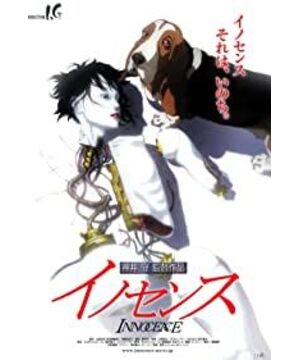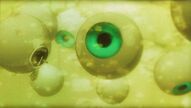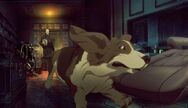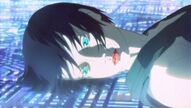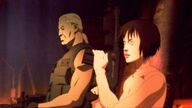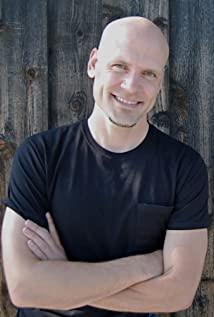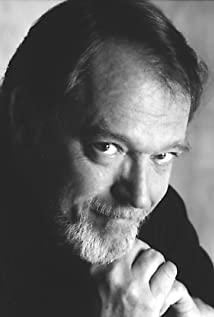In GIS1, the entire film is still complete; in Innocence, the story has been replaced by fragmented intentions. It can be said that Oshii Mamoru wants to give us the greatest degree of horror; what this story tells, it seems that it can only be called Cyber but not Punk, because he is no longer telling the story of a standard CP individual against a huge system. , But how a person fits into this system. Who seems to have such a famous saying: If you can't beat them, join them. In the series of GIS stories, the element of horror is people. How to transform oneself to cater to machines?
Have you noticed that hand?
In fact, it is a very old story for people to transform themselves to cater to machines. As far as Mary Shelley's first science fiction, Frankenstein can be said to be a story of how to transform people. All other stories did not bring us such a horror as GIS, because the story of GIS and our reality are almost indistinguishable. No matter how many stories we have seen about nuclear wars or environmental pollution that people have to reform themselves to cater to the environment, we don't have the horror we have now: because it is something far away from us. The other is the inevitability. People "have to" go to a certain point in a certain environment. Such a story is a little more reassuring to our self-proclaimed sense of freedom. The fear of GIS is that we entered this kingdom of necessity through free will, and no one can blame it. An inevitable choice, a choice without choice. Chen Qian wrote in her "Ten Years of Fast Traveling" that time-slowing drugs are a certainty of the future, and this is the direction that the entire technical train of madness must point, and this is also the sorrow of GIS.
Who paid attention to that hand?
The world of GIS is a reflection of our world. GIS1 first used police broadcasts in English, Japanese, and Chinese. What was the Cantonese spoken by the GIS2 ship when the ship dived? The billboards that appear throughout Innocence do not have a sign that Japanese is all Chinese. What does it mean? Why was a statue of Guan Gong erected in front of the completely Westernized Gothic church building? Are these deliberate mashups a necessity in our world?
Has anyone noticed that hand?
"We have transformed ourselves in order to survive better in this world." Father Clark wrote at the end of the first chapter of "2001: A Space Odyssey": People are transformed by his tools. That's right. Over the past few million years, due to fire, our teeth have deteriorated, our jaws have receded, and our hands have become more dexterous. But what is our next step? Actively transform ourselves? Is this a quantitative change or a qualitative change? We have been transformed by our tools for millions of years. What can't we do next? The female forensic doctor (let's call it that way) lifted up half of her face to connect to the microscopic instrument, and Bart simply replaced her eyes with robotic eyes, and Degusa, who did not want to modify it, still has a direct spinal link. , What kind of saying is "unwilling to reform"?
Who on earth paid attention to that hand?
The manipulator typing on the keyboard in GIS1 is one of the most terrifying metaphors I have ever seen. I personally think that no design in GIS is more successful than the design of this hand. What is the hand? It is the earliest tool of mankind, and all tools are extensions of hands. What is the keyboard? It is the input device of the computer. In order to talk to machines, humans invented the keyboard; the keyboard is an extension of the hand, and its basic design has not changed in the hundreds of years since the invention of the typewriter. So, in GIS, people have transformed their hands, such a meta-tool, to adapt to the keyboard, an input device of a machine that has not changed for hundreds of years. What does it mean? Did human beings abandon their superior position and admit that machines are more advanced? Why does Barthes want to be deconstructed? Why use the eye of a machine? Because the visual organs composed of machines can see more clearly? In the small shop, he was disturbed and shot himself and almost killed the shopkeeper. What kind of metaphor was this? All the guards on the ship took off their eyeballs and replaced them with imagers. What is this for? Is the illegal reformer who enters the gang headquarters specifically for killing people already mechanized to that extent? I remembered some of the settings of Warhammer 40K. The god of machines is a "thing" higher than humans. The human body installed in the elevator and in the body of the slave worker admitted his failure.
Have you noticed that hand?
View more about Ghost in the Shell 2: Innocence reviews


